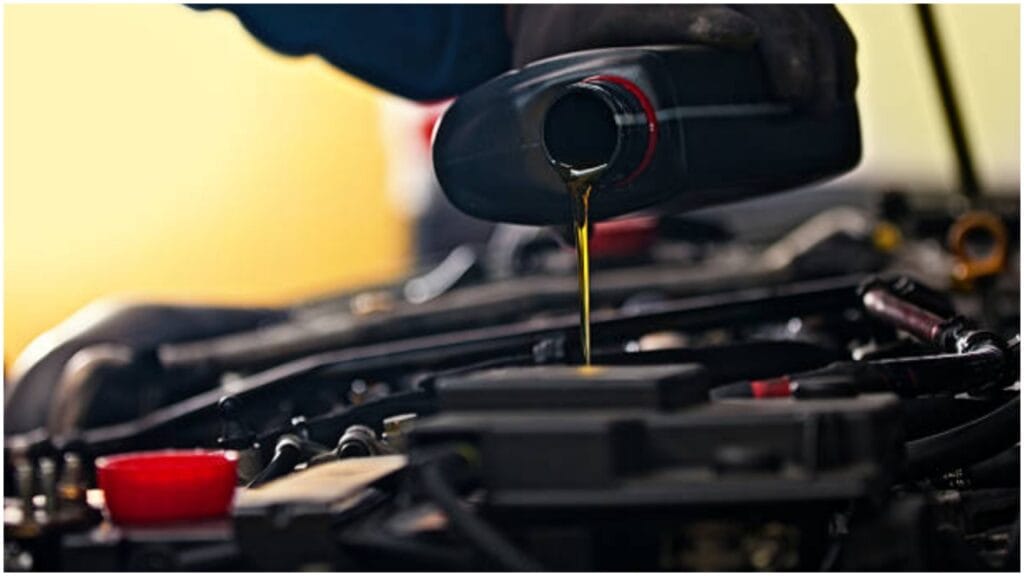Oil additives can be crucial in reducing friction and enhancing engine performance when dealing with engine noise.
Many drivers seek a solution to minimize the unpleasant sounds from their vehicle’s engine, often caused by wear, tear, and lack of lubrication.
Selecting the right oil additive can help restore smooth operation and extend the engine’s life.
Understanding Engine Noise
Engine noise typically arises from friction between engine components, such as pistons, valves, and crankshafts. This friction causes wear, leading to the characteristic clattering or ticking sounds.
As engine parts degrade, the noise may become louder. While regular oil changes can help, your engine may need extra support to run quietly again.
How Oil Additives Work
Oil additives are formulated to improve motor oil’s lubrication properties. They contain advanced chemicals designed to reduce friction, clean internal engine parts, and protect against corrosion.
When added to the oil, these substances can create a smoother film between the engine components, which leads to less wear and tear. This smoother operation can result in reduced engine noise.
Types of Oil Additives for Engine Noise
Several types of oil additives are specifically designed to target engine noise. Some of the most common include friction modifiers, anti-wear agents, and viscosity enhancers.
Friction modifiers reduce the friction between moving parts, while anti-wear agents form protective layers on metal surfaces to minimize damage.
Viscosity enhancers improve the oil’s thickness, making it more effective at lubricating the engine and reducing noise caused by insufficient lubrication.
Friction Modifiers: Reducing Metal-to-Metal Contact
Friction modifiers are among the best additives for tackling engine noise. These chemicals create a slippery surface between metal parts, decreasing direct contact.
As a result, the engine runs more smoothly and quietly. Friction modifiers minimize friction, reducing the high-pitched sounds typically from the engine.
They can be instrumental in older vehicles or high-mileage engines that have experienced more wear.
Anti-Wear Additives: Preventing Damage
Anti-wear additives are another effective solution for reducing engine noise. These additives form a protective barrier on metal surfaces, preventing the components from grinding against each other.
This reduces the risk of wear and tear, directly contributing to noise reduction. Anti-wear additives are particularly beneficial in engines with high mileage or that have suffered from previous lubrication issues.
By using anti-wear additives, you can maintain the health of the engine and prevent engine noise from increasing further.
Viscosity Enhancers: Thicker Oil for Better Lubrication
Viscosity enhancers work by increasing the thickness of the engine oil, allowing it to provide better lubrication. Thicker oil creates a more stable barrier between moving engine parts, reducing the chance of metal parts rubbing against each other.
This results in less noise and smoother engine operation. Viscosity enhancers are ideal for reducing engine noise caused by oil thinning in high-temperature conditions, especially in older engines.
Best Oil Additives for Engine
Several well-known brands have developed oil additives that target engine noise. Some of the top-rated options include:
Lucas Oil Heavy Duty Oil Stabilizer
This additive is widely recommended for reducing engine noise. It works by increasing the oil’s viscosity, which helps create a better lubricating barrier between engine parts. The result is smoother, quieter engine operation and is especially effective in high-mileage or older vehicles.
STP Oil Treatment
STP is a trusted name in the automotive industry, known for its oil treatment products. Their oil additive is designed to reduce friction and wear, which helps reduce engine noise. It also enhances the oil’s ability to withstand high temperatures, making it a good choice for cars driven in hot climates or under heavy loads.
Marvel Mystery Oil
Marvel Mystery Oil is an additive that cleans engine parts while reducing friction. It is designed to improve the oil’s performance and restore engine parts to optimal working conditions. This additive is beneficial for restoring smoother engine operation, helping to reduce noise caused by sludge buildup or worn parts.
Liqui Moly Cera Tec Friction Modifier
Liqui Moly’s Cera Tec is a high-performance friction modifier that reduces engine noise. It uses ceramic compounds to reduce friction between metal parts, resulting in a quieter engine. It’s particularly effective in engines with high mileage, where wear and tear are more likely to cause noise.
When to Use Oil Additives for Engine Noise

Oil additives should be used when you notice persistent or excessive engine noise. If your engine is still under warranty or in good condition, additives may not be necessary.
If your car has high mileage or has developed noise over time, oil additives can help restore smooth performance.
Choosing the Right Additive for Your Engine
When selecting an oil additive, it is crucial to choose one compatible with your engine’s specific needs. If your engine’s noise is caused by friction, a friction modifier will likely be the most effective option. An anti-wear additive might be the best choice for older vehicles with significant wear.
How to Add Oil Additives
Adding oil additives is simple, but it is important to follow the manufacturer’s instructions. Typically, the additive should be poured directly into the engine oil before a new oil change.
After adding the product, run the engine for a few minutes to allow the additive to circulate throughout the system.
Precautions and Considerations
While oil additives can be an excellent solution for reducing engine noise, it’s important to exercise caution. Overusing additives can lead to excessive oil thickness or unintended side effects.
Always check the manufacturer’s recommendations and use additives in moderation. Remember that while oil additives may reduce noise, they cannot fix deeper mechanical problems such as worn-out engine parts or a lack of regular maintenance.
Conclusion
Engine noise can be annoying, but using the right oil additive can make a significant difference. You can reduce engine noise and improve your vehicle’s overall performance by selecting the proper friction modifiers, anti-wear agents, or viscosity enhancers.
For best results, always remember to choose a product suitable for your engine’s needs and follow the manufacturer’s guidelines.

